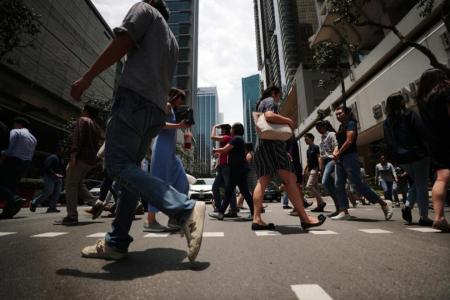Avoid narrow definition of ‘Singapore core’: DPM Heng
The ''Singapore core'' should not be too narrowly defined in terms of whether someone is Singapore-born, a new citizen or a foreigner who is helming a company, Deputy Prime Minister Heng Swee Keat said yesterday.
''That test for us must be the commitment to Singapore, the commitment to the well-being of Singapore and of Singaporeans,'' he said.
He was responding to a question at a virtual media conference by the Emerging Stronger Taskforce, on which term - ''Singapore core'' or ''Singaporean core'' - most accurately captures Singapore's workforce policy, and what global talent will be needed to implement the task force's recommendations.
Drawing on his own experiences running the Monetary Authority of Singapore during the 2008 to 2009 global financial crisis, Mr Heng said many chief executives of international banks in Singapore had given him outstanding advice on how to deal with the crisis - demonstrating that they had Singapore's interests at heart.
''Some of the CEOs from these banks are as Singaporean as Singaporeans who were born in Singapore and went through national service...
''In fact, some of them, whom I knew personally, had become Singapore citizens,'' said the minister, without elaborating.
REPORT
The task force was formed in May last year to chart Singapore's post-pandemic recovery, and it yesterday released a report outlining economic strategies to drive the country's transformation.
Mr Heng, who is also the Coordinating Minister for Economic Policies, noted that Singapore would have to contend with the twin challenges of an ageing labour force that is growing slowly, as well as a digital, networked economy where it is going to be much more of a winner-takes-all situation.
As a multiracial, multicultural and multi-religious society, Singapore must not end up like some other countries and territories in the world, where the fear of losing jobs leads to a protectionist instinct where people as well as goods and services from other places are kept out, he cautioned.
He said that jobs and skills transformation will also be a key part of the task force's work so that workers can benefit from these changes across various economic sectors.
This article first appeared in The Straits Times.
Get The New Paper on your phone with the free TNP app. Download from the Apple App Store or Google Play Store now


